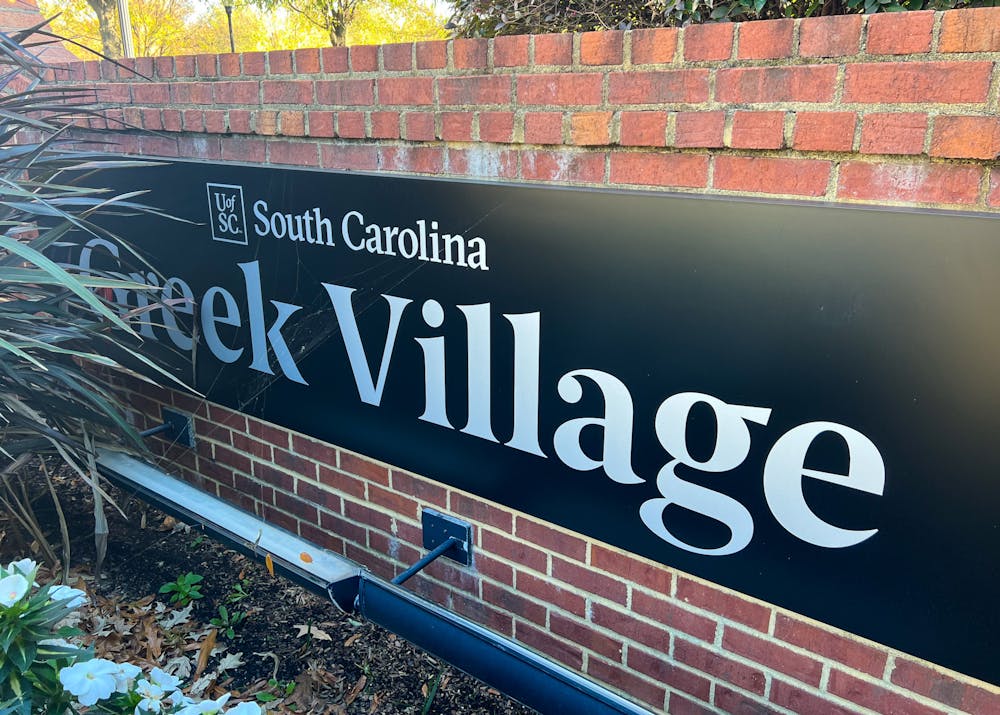After investigations into organizational conduct violations, USC suspended the Theta Delta Chi fraternity chapter for hazing violations on Nov. 4, 2022, until at least Nov. 4, 2026.
Four other fraternities — Phi Delta Theta, Pi Kappa Alpha, Kappa Alpha Order and Phi Kappa Sigma — were placed under conduct probation for multiple months.
The university investigated Theta Delta Chi about an incident on Sept. 20, 2022, after information was provided to university staff about alleged hazing concerns. The investigation found "concerns related to inappropriate activities in the new member education experience." The fraternity was already on university conduct probation until Nov. 18, 2022, for hazing and other violations from a November 2021 incident.
"Behaviors that jeopardize safety, such as hazing, are not tolerated at the University of South Carolina, and the administration has a responsibility to act once violations occur," USC spokesperson Jeff Stensland said in an email to The Daily Gamecock. "New and existing members of student organizations receive extensive education about what constitutes improper conduct."
David Keen, a brother of Theta Delta Chi and last year's president of the Interfraternity Council (IFC), said the complaints against Theta Delta Chi involved a sexually explicit scavenger hunt and a pledge pack, which is a list of things a new member of a fraternity is instructed to carry.
Keen said he and the rest of the IFC executive council were not aware of certain allegations against specific fraternities until they saw the report issued by the Office of Student Conduct. He said he wished they could have seen the specific allegations earlier so they could have addressed them proactively rather than having to wait to react to whatever the Office of Student Conduct determined.
"Maybe (sanctions will) work in trying to help (fraternities) stop their actions, but it's really just a few individuals causing these problems," Keen said. "In the long-term, that's not going to work if the university really wants to change a culture."
Brennan O'Kane, the current president of the IFC, said he did not want to speak on the suspension because he did not "really know the reasoning."
The other investigated fraternities, Kappa Alpha Order and Phi Kappa Sigma, were found responsible for hazing after an incident, or incidents, that occurred on Sept. 13, 2022. The two fraternities were placed on conduct probation until April 10, 2023, and March 29, 2023, respectively.
Pi Kappa Alpha and Phi Delta Theta were both found responsible for failing to "comply with and respond appropriately to the reasonable and lawful requests of university officials (including resident mentors) in the performance of their duties." Pi Kappa Alpha was placed on conduct probation until Oct. 26, 2023, and Phi Delta Theta was placed on conduct probation until May 12, 2023.
The Office of Student Conduct and Academic Integrity investigates and decides all reported misconduct. It also conducts outreach to educate students on the university's conduct standards.
"Our philosophy is really educational — to make sure that students are learning from the choices that they're making and that we're having a safe Carolina community overall," Director of Student Conduct Maureen Grewe said.
Grewe said all violations are handled the same, whether it is an organization or an individual being investigated.
If a student is found to have committed a violation, the office meets with them to discuss why it believes there was a violation and to explain each educational sanction's purpose. If the student disagrees with the outcome of an investigation, they can appeal to the Carolina Judicial Council, which is run by students. There, students can choose a full hearing, where they contest the responsibility for the allegation, Grewe said.
In addition to the university's investigation, every chapter and council has an internal process to hold individuals and individual chapters accountable for violations. Greek life organizations at USC are part of national affiliates, which can also have their own standards.
If a fraternity is suspended by the university, it is not recognized as an official student organization and cannot function on campus. However, the national affiliate can decide that the fraternity can still operate, but it has to do so off-campus. This occurred with Theta Delta Chi.
Keen said the IFC executive council and Theta Delta Chi initially heard about any possible violations in mid-September. After the university investigated and the fraternity was found responsible for hazing, Theta Delta Chi attempted to reduce its suspension with a hearing by the Carolina Judicial Council and then directly appealed to the Dean of students Marc Shook.
As former president of the IFC, Keen made it a goal to implement an alternative judicial process to investigate sanctions and potential violations. O'Kane said he is continuing this effort.
For "smaller violations," O'Kane believes an alternative to the current process could be easier for "both sides." However, the meaning of "smaller violations" is still being discussed by the IFC.
The student organizational conduct website reports violation charges, but not the severity of a specific charge. Details surrounding charges are also not reported. Theta Delta Chi, Kappa Alpha Order and Phi Kappa Sigma were all sanctioned for hazing, but only Theta Delta Chi received a suspension. Keen said this lack of transparency is not fair.
"I think the issue is no one's going to know what actually happened (during the incident), which is not really fair either if it's more severe or less severe," Keen said.
Stensland encouraged anyone who knows of hazing activities or any other conduct violations to contact the university’s 24/7 reporting hotline at 803-777-5800 or file a report online.

